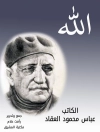In ‘The Song Celestial or Bhagavad-Gita, ‘ Edwin Arnold presents a poetic rendition of the ancient Indian text, the Bhagavad-Gita. This work encapsulates the philosophical dialogues between Prince Arjuna and Lord Krishna, addressing profound themes of duty, righteousness, and the nature of the self. Arnold employs an eloquent literary style, interspersing lyrical verses with rich imagery, which transports readers into a world of ethical dilemmas and divine wisdom. Positioned within the broader context of 19th-century Western interest in Eastern spiritual texts, Arnold’s translation aims to bridge cultural divides and offer the timeless insights of the Gita to a Western audience, emphasizing universal values of introspection and moral inquiry. Edwin Arnold (1832-1904) was an English poet and journalist whose fascination with Eastern philosophy and spirituality influenced his literary endeavors. His background in classical literature, along with his experiences in India, fueled his passion for elucidating the intricacies of the Gita’s teachings. Arnold’s desire to present Indian thought through a Western lens reflects his commitment to fostering cross-cultural understanding, revealing the spiritual richness of the text to an audience unfamiliar with its profound philosophical depth. Readers seeking enlightenment through philosophical discourse will find ‘The Song Celestial’ an essential addition to their literary collection. Arnold’s vibrant translation not only serves as a captivating introduction to the Bhagavad-Gita but also invites reflection on one’s personal moral journey. This work resonates deeply with those interested in exploring the eternal questions of existence and the human condition.
Over de auteur
Sir Edwin Arnold (1832–1904) was an English poet and journalist, best known for his employment of blank verse in lyrical interpretations of Asian philosophies and religions. Born on June 10, 1832, in Gravesend, Kent, Arnold nurtured a fascination for the Far East, which profoundly influenced his literary career. His scholarly pursuits at King’s School, Rochester, and later at University College, Oxford, earned him a first-class degree in Classics. Upon graduation, Arnold embarked on a career in education before turning to journalism, ultimately becoming the editor of ‘The Daily Telegraph’, a position he held for over forty years. His fascination with India and Buddhist philosophy led to the publication of ‘The Light of Asia’ (1879), a poetic rendering of the life and teachings of the Buddha, which garnered widespread acclaim and contributed significantly to the Western understanding of Eastern thought. ‘The Song Celestial or Bhagavad-Gita’ (1885), his adaptation of the Bhagavad Gita, is considered a seminal work, notable for its poetic grace and clarity. Arnold’s literary style is characterized by a romantic enthusiasm for the cultures of the East and a desire to make their philosophies accessible to a Western audience. His works often reflect a didactic intention, seeking to convey moral and philosophical ideas through verse. Arnold’s contributions to literature and cross-cultural understanding were recognized by his knighthood in 1888. He remains a respected figure in nineteenth-century English literature, revered for his efforts to bridge Eastern and Western cultures.












